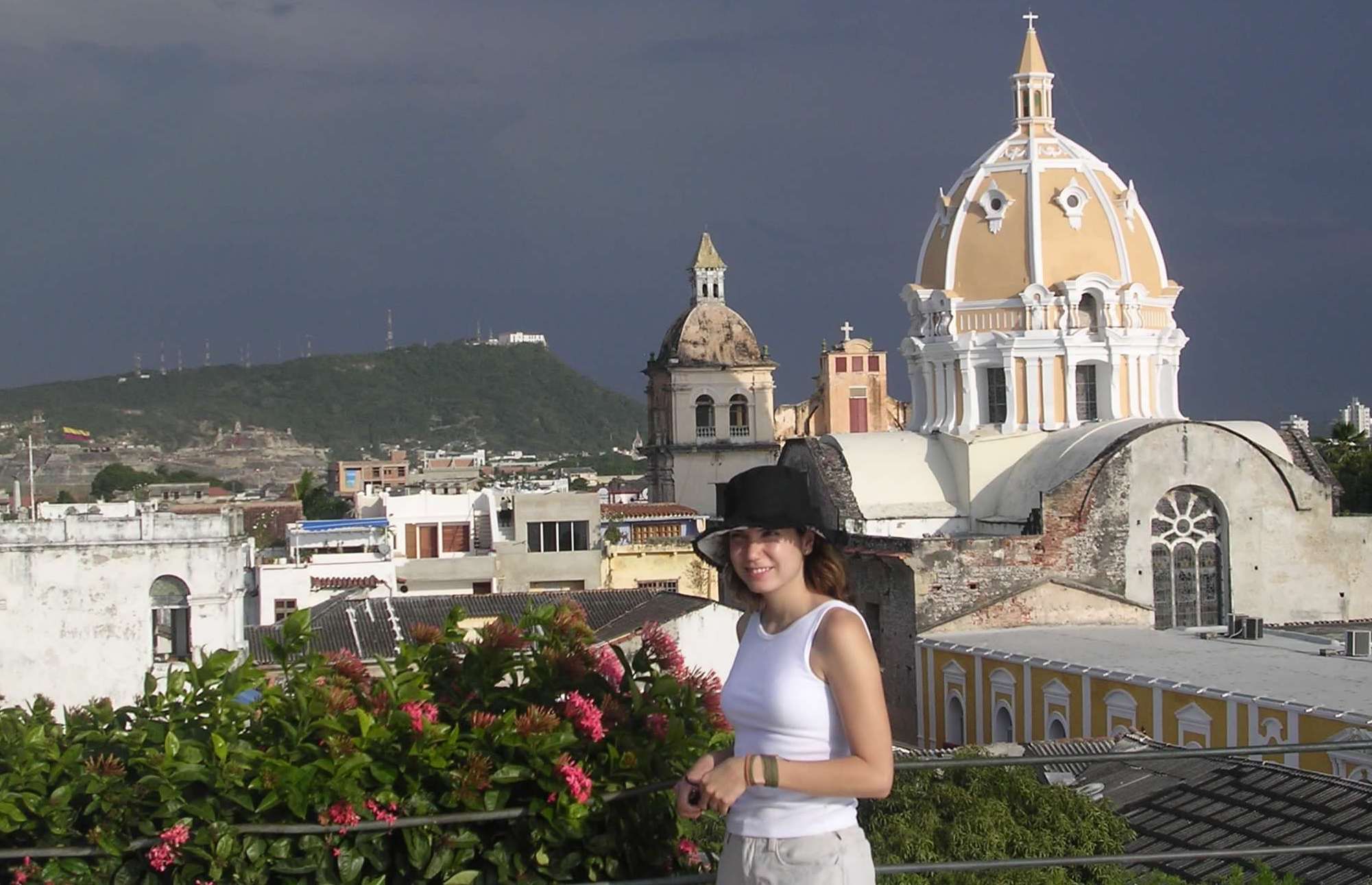For Latinx Heritage Month we’re featuring members of our Berkeley Haas community. Here we profile Cristina (Bermudez) Rossman, MBA 00, on how the 9/11 attacks made her reconsider her identity.

Cristina Rossman, MBA 00, was boarding a plane in Boston when Al-Qaeda attacked the U.S. on 9/11.
“The airport was in lockdown,” she recalled. “They still hadn’t figured out what was going on. People were on phones with their families but you weren’t sure what was real and what wasn’t.”
Rossman, who was wrapping up a post-graduation cross-country trip with her husband before starting a new job at Morningstar in Chicago, boarded a shuttle and headed to the nearest hotel.
The next day, they rented a car and drove to Chicago, a trip that Rossman, a native of Colombia, believes put her on a path to understanding the importance of embracing multiple identities.
Feeling something shift
Until 9/11, Rossman had not considered herself American.
“I grew up with one identity, Colombian,” said Rossman, whose father was a doctor and moved the family from Bogotá to the U.S. to pursue his specialization in gastroenterology. “Even though my schooling and my friends were here, my parents always intended to move back. My mom flew from the U.S. to Colombia when she was pregnant so that I’d be born there.”
Driving back to Chicago with her husband, who is American, Rossman said she felt something shift. “In upstate New York, there were trucks on the highway with big American flags, and I saw all of these small towns with their flags flying,” she said. “It was the first time that I realized that the U.S. could be in danger. That’s when I definitely understood that I was equally American. This is part of who I am and I wanted to honor and protect it. ”
It was the first time that I realized that the U.S. could be in danger. That’s when I definitely understood that I was equally American. This is part of who I am and I wanted to honor and protect it.
Being Colombian in the U.S. wasn’t always simple as a kid. The drug war caused strife between the U.S. and Colombia and led to stereotypes of Colombians. But relations between the two countries have improved and interest in exploring Colombia is growing, she said.
“The perception of Colombia as violent is going away,” said Rossman, who lives outside of Chicago with her husband and 13-year-old twins. “The country is now full of tourists and its biodiversity is amazing. I’m no longer surprised when colleagues ask me to coffee to discuss a vacation there.”
“Not the story people wanted to hear”

At work as a marketing executive, Rossman said that for years she had mild imposter syndrome with her Latina identity, mainly due to her family’s privilege.
“We didn’t come to the U.S. because we were financially unstable or because we had to come here,” she said. “Yet that often felt like that was the story that people wanted to hear.”
That discomfort has faded, she said. As chief marketing officer at Relativity, which manages large volumes of data used in litigation, internal investigations, and compliance projects, she has the opportunity to share her reflections on identity with others and learn from them.
At a recent Culture Collective forum, a panel of colleagues shared how they navigated the topic of race both personally and professionally. “I was so impressed by how open and honest people were in sharing different perspectives and experiences, asking questions, and learning from one another,” she said. “I truly believe that when employees feel empowered and supported to be their authentic selves at work, especially in such a creative department like marketing, the output of our work is infinitely better.”